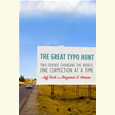Compact, but Planetary
Richard Powers’ Bewilderment is a meditation on grief and the possibilities of radical empathy
In an early chapter of Bewilderment, Richard Powers’ heartbreaking and transcendent new novel, astrobiologist Theo Byrne lies next to his troubled young son, surrounded by ancient mountains, telling stories of interstellar exploration. Under the shelter of a two-person tent, the boy chides him for inventing an impossible detail. Theo reflects, “And we were, we Earthlings. Making it up as we went along, then proving it for all the universe to see.”

As an astrobiologist, Theo charts the far reaches of the universe for signs of all forms of life. By working with rapidly accelerating discoveries of astronomical data and technologies, Theo can create a model of possible atmospheric conditions on a given planet somewhere in distant space, in the hope that these results “can tell us if the planet is alive.” Through his work and his love for science fiction, Theo has spent decades considering endless combinations of environmental variables, gaming out the possibilities of survival.
Theo’s earthbound life orbits around his 9-year-old son, Robin, whom he describes as a “sad, singular” boy “in trouble with this world.” Plagued by temperamental meltdowns and social difficulties that seem to make school impossible, Robin is far more at home among the wildlife that he loves to study and the imagined travels to far-flung planets he shares with Theo. Since the sudden death of his mother, Alyssa, Robin’s struggles have intensified, reaching a level of volatility that threatens the future of this tight-knit father-son household.
Alyssa’s memory hovers over everything between Theo and Robin. A dynamic, ferociously committed animal rights activist, Alyssa pursued her work nonstop (even including persistent night terrors), advocating for defenseless creatures. Alyssa provided their family life with its engine of purpose. For many chapters, she does come across as an idealized character, but soon Theo’s narration begins to suggest that he’s viewing her through a glowing, forgiving lens of grief.
Bewilderment reads like close kin to Powers’ 2018 masterwork of ecological vision, The Overstory, which not only won the Pulitzer Prize but also reset the literary scale for how to depict humankind’s rapturous and perilously fraught relationship to nature — specifically to trees. Bewilderment contains stunning scenes set in the forests and streams of Tennessee’s Great Smoky Mountains, where Powers himself now lives. But in this novel, Powers also takes his environmental cri de coeur intergalactic.
 Theo’s favorite phrase for Alyssa — “compact, but planetary” — also describes Bewilderment. Powers intersperses the unfolding story of Theo and Robin’s increasingly untenable life together with passages that describe the imaginary travels that father and son take to fantastical imaginary planets. These planets have forged habitable ecosystems under innumerable conditions — harsh temperatures, extreme orbital features, repeated cycles of extinction events. There, life perseveres in the oddest forms.
Theo’s favorite phrase for Alyssa — “compact, but planetary” — also describes Bewilderment. Powers intersperses the unfolding story of Theo and Robin’s increasingly untenable life together with passages that describe the imaginary travels that father and son take to fantastical imaginary planets. These planets have forged habitable ecosystems under innumerable conditions — harsh temperatures, extreme orbital features, repeated cycles of extinction events. There, life perseveres in the oddest forms.
This endless variation of what’s possible — of the potential for survival and rebirth — keeps father and son going despite their own adverse conditions. So, when an academic colleague and former friend of Alyssa’s, Martin Currier, seems to offer Robin a promising but experimental escape from his suffering, Theo takes the risk.
Currier’s experimental technique, called Neural Feedback Training, allows subjects to engage their own brain patterns with the previously mapped patterns of other brains, training themselves to match emotional states. In effect, this technique can enable a subject to feel precisely what another person has felt — a radical state of empathy. Theo and Alyssa had once undergone initial scans themselves, with intense results. Now, as school authorities pressure Theo, and Robin appears to be sinking into depression and rage, Theo allows Robin to enter this experimental process. Before his eyes, the boy begins to transform, filling Theo with relieved joy and ominous dread, in equal measure.
Theo’s dilemma defines the transcendent power of the novel. We, too, swivel between states of certainty about our loved ones and sudden reminders that they are ultimately unknowable to us. The most alien ecosystem may be just as illusive to us as those who sleep under our own roofs. What Bewilderment captures so powerfully is the relentless, unreasonable fervor of our human drive to reach for those we love, to try to know them even as they slip away from us, suddenly out of orbit.
Though Bewilderment is intergalactic in scope, the heart of this novel dwells in the most intimate space we know — in the profound vulnerability that’s asked of us when we attempt to love another person without deception or illusion.

Emily Choate is the fiction editor of Peauxdunque Review and holds an M.F.A. from Sarah Lawrence College. Her fiction and nonfiction have appeared in Mississippi Review, Shenandoah, The Florida Review, Rappahannock Review, Atticus Review, Tupelo Quarterly, Late Night Library, and elsewhere. She lives near Nashville, where she’s working on a novel.


